1. Please introduce yourself Bonnie
Hello, my name is Bonnie Cooper, I’m a Canadian Soprano based in Galicia, Spain. I teach voice and piano, in Spanish and in English, and I have various sing-in -English groups, and I also direct children’s choirs and a cappella groups. I also work as a concert singer, and sing as a soloist with groups in Spain or Portugal.
2. At what age did you start singing and what inspired you to do so?
I began singing in a school choir in my hometown in Canada, and from there I found other more serious choirs to participate in. At some point in high school, my music teacher said that I had the aptitude to continue in a professional way, and I started to learn the skills and achieve the prerequesites to attend tertiary education as a singer.
3. What educational pathway did you choose to support your career?
Through my private voice teacher, I was encouraged to study at the University of Ottawa with Ingemar Korjus, and I completed a four-years Honours degree in Music, specialising in Voice
4. What were the most interesting parts of your degree?
This is a difficult question to answer, because at the time I preferred the practical aspects of singing, like the private voice lessons and the opera roles. However, what I rely on now as a performer is my music history and theory classes, particularly analysis. This goes to say, all the parts of the degree are important.
5. How did you develop your singing skills and gain experience in this area?
I had private instruction before attending University, then I had a university degree, but you never stop learning. During my degree and afterwards, I took (and continue to take) masterclasses from important singers and teachers, to keep learning and improving. Music is a journey without a destination – you have to keep walking the path.
6. It is great to see you’re still regularly performing in Spain just like you used to in Cambridge, we miss you here! Have you been performing throughout lockdown through an online platform?
The lockdown was incredibly difficult for me personally, as I had some significant performances coming up which I had worked hard to get the contracts for, and had all been cancelled. It was just a matter of getting through each day as it came. Also, I have a different opinion on the Zoom music etc – if someone wants to watch recorded versions of a particular work, it is all on YouTube with the highest calibre of performers at the grandest venues. I’m not sure if anyone is interested in a group of people recording music individually in their bedrooms, to then be combined technologically, but not to blend musically. That’s not really what music is about. At least, not to me.
7. Since you moved away from England I see that you have re-focussed your attention on the forgotten works of Spanish composers and women composers of all nationalities. I am really interested in this as well. Please tell us about some of the composers whose works you are bringing back to life?
Spanish music, particularly renaissance music, is almost completely forgotten. Though to be forgotten it would have to have been significant at some point. It is like a black hole in the canon, and I am doing my best to bring it to current audiences. This is the same with women composers. The music is beautiful, moving and eloquent, yet has gone completely unnoticed for the last...how old is Western Civilisation? This is what my focus is in my singing, to introduce audiences to wonderful unknown music.
8. Your voice sounds fabulous in your recent recordings. Whom do you collaborate with in Spain?
First of all, thank you! I worked with Teresa Novoa, dramatic soprano for a few years, and I have had some coachings with Lorena Valero.
9. What does a typical day look like for you (or what might your day consist of)?
This is really a tough question to answer, as musicians are always running around doing about 12 jobs in different places all the time! I teach English and Music at the high school, I run sing-in-English courses, I have private vocal students, I am creating a concert for young families, I am learning an hour-long recital of Spanish music, I take pilates classes twice a week. It’s busy and crazy and I’m always switching gears, but I just think about Bach and Haydn doing the same thing 200 years ago and I feel instantly connected to those who, like me, have a vocation bigger than themselves.
10. Is there anything about being a singer that challenges you?
I love performing, but it’s about 10% of my actual job. My job is everything else – learning the music, rehearsing with the pianist, preparing for the orchestra, teaching my students, arranging their performances. I wish that I were performing more, but I have a young family so it’s going to have to wait! I just remind myself to work blindingly hard learning the music and preparing the performance, so that when I finally get onstage, I can give myself to the audience, and enjoy every second of it.
11. Do you prefer live or radio/online performance? What do you like about each?
Live performance has a magic that is impossible to replicate in any other setting. The audience is part of the performance. How they react, the energy they bring, what they laugh at, what they pick up on from the text. That’s why it’s crucial for performers to be in contact with the public – the audience is here for the performance, you must acknowledge their presence, and make music for them. So many times I see musicians turning their back on the audience, or burying themselves in the score. Who are you performing for? If it is for yourself, do everyone a favour and sing in the shower, or play in the garage. But if it is for the public, you must connect with them, and do everything possible so that they connect with your performance.
12. Do you have a favourite artist who inspired you and if you do, in what way?
The answer to this question changes all the time, as I hear different things from different singers as I go on my journey. My favourite singer for a long time was Dame Felicity Lott, and I still love listening to her. I have also been inspired by Dame Kiri te Kanawa, Lucia Popp, Elisabeth Schwartzkopf, Arleen Auger, Deborah Voigt, Renee Fleming, Elly Ameling and Kathleen Battle. The best part about being a listener is you don’t have to choose a favourite, you can love them all for different reasons.
13. On the topic of performance, do you have a favourite piece?
Like I said before, you don’t have to have a favourite! Some of my favourites are Messiaen’s Poemes pour Mi, Mozart’s Exsultate Jubilate, and Strauss’ Four Last Songs. But just from looking at that list, where are the women composers? I’m going to make sure the next time someone asks me this, I have a contribution from a woman composer.
14. What else inspires your music?
Life is always giving you material or inspiration. Right now I’m focussed on Spanish song and women composers, and these two interests came when I began studying in Spain and realised I didn’t know any Spanish composers other than de Falla, and I had sung NO compositions by women in my entire career!!!! Who knows what the future will bring?
15. What do you think the future of singing recitals is?
The song recital has always been a niche in musical performances, with people attending because they are an educated audience and well-versed in the music, or the recital is being offered by a star from the opera world. At a local level, it is a way for singers to get onstage and offer music without an orchestra. I think it will continue in much the same way in the future.
16. Where do you see your career going from here?
Once the world has rebalanced itself after Covid, I would like to do more opera roles. But otherwise, life is good. I offer high-level performances of music I’m passionate about to engaged local audiences. Most likely, more of the same. I am also interested in composing. I would like to set some of the poetry of Sylvia Plath and Charlotte Perkins Gilman.
17. Any tips on how to manage a good work life balance as a musician?
I think balance in the musician’s life looks like balance in any working person’s life. It is hard to achieve, and one must always be recalibrating to get the balance right. In general, it is the quality of time at work and the quantity of time at home which will bring the most richness to one’s life. Plan the practise sessions, research the music and the composers, work hard in the practise room, then get out and get living. Otherwise musicians will have no real-life experience to bring to their performances, merely offering a technically-brilliant rendering of a piece.
18. What would your advice be to a young person interested in becoming a career singer?
Find a good piano and theory teacher!! It is so important to know what all the squiggles on the staff mean, and you can only busk it so far! The vocal part can always be picked up later, as long as you start before 20 and you’re ready to work.



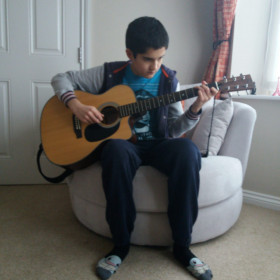

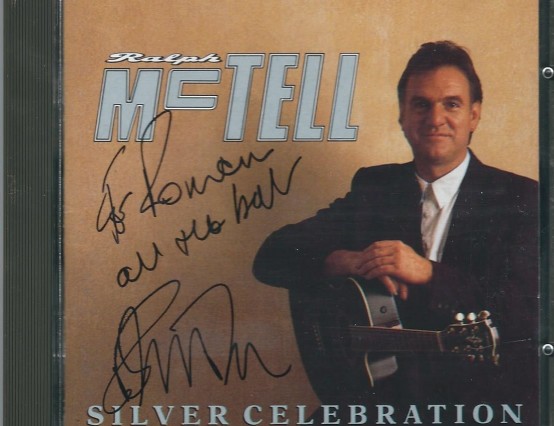

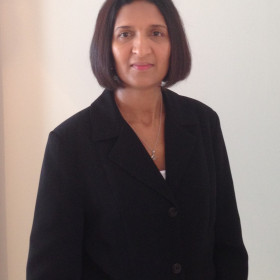

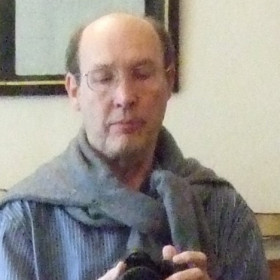

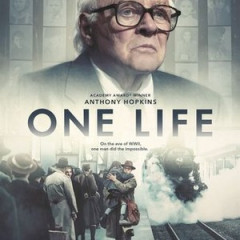
Great interview with a great singer. Lots of insightful questions and answers.